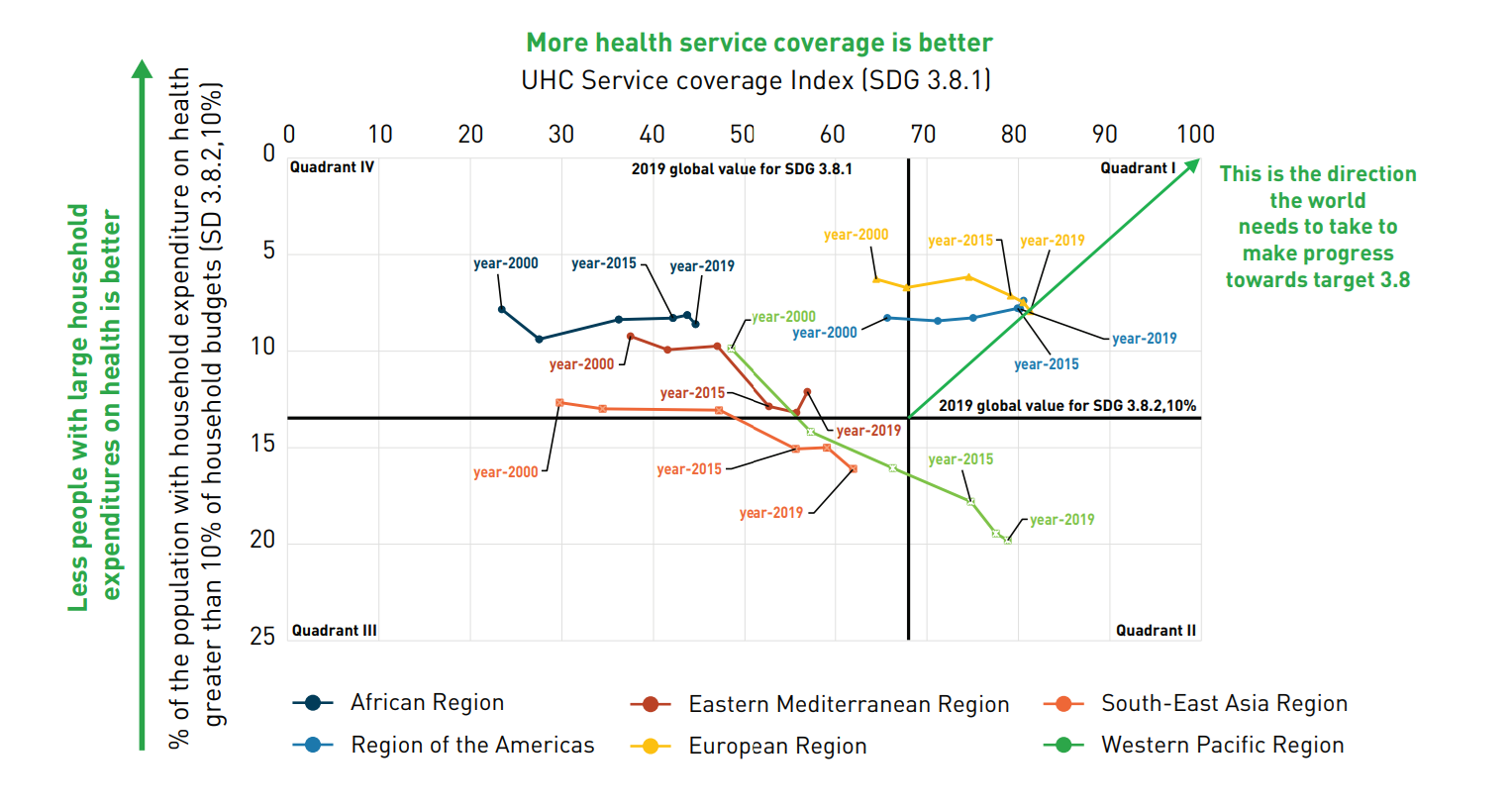
Universal Health Coverage (UHC) means that all people are able to use quality health services that they need, when and where they need them, without facing financial hardship. UHC is the overarching target of the Sustainable Development Goal on Health (SDG 3), and is vital for achieving several other SDGs. UHC plays a pivotal role in lifting individuals out of poverty, enhancing the welfare of families and communities, safeguarding against public health emergencies, and advancing us towards inclusive societies.
Every year on 12 December, Universal Health Coverage Day is celebrated to urge leaders around the world to make smarter investments and accelerate efforts toward “Health for All”. This year's theme for UHC Day is "Health for All: Time for Action". Having passed the midway point of the Sustainable development Goals deadline, it emphasizes the urgency and importance of accelerating progress towards UHC by 2030.
Over the past two decades, the Western Pacific Region has made significant progress towards UHC thanks to the relentless work of Member States, WHO and other experts. The UHC service coverage index (UHC SCI) has increased from 49 in 2000 to 79 in 2019, and continues to be in 2021, one of the highest increases across WHO’s six regions. Almost twice as many people in the Western Pacific have now access to better care, when and where they need it.
There is however significant work to do, as the trend for financial protection is heading in the opposite direction. In the Western Pacific, countries have seen considerable increases in the incidence of catastrophic health expenditure. Twice as many individuals and families – from 9.9% in 2000 to 19.8% in 2021 are spending unreasonable amounts of money to access health care, jeopardizing their financial security or even pushing them into poverty. Progress towards UHC also remains uneven across and within countries in the region, with disparities in both service coverage and financial protection.
During the United Nations High Level Meeting on UHC in September 2023, countries committed to take concerted actions to accelerate progress towards UHC in coming years. COVID-19 taught countries many lessons and illuminated the need for a paradigm shift, one that reorients their efforts in building more resilient health systems for UHC and health security. This shift includes taking a systems approach, where UHC serves as the foundation. It also calls for the integration of disparate efforts within and outside the health sector, applying whole-of-government and whole-of-society approaches. Because all people, no matter who they are or where they are from, deserve quality, affordable health care.
Let’s work together to leave no one behind!
Health for All: Time for action!
Related links: